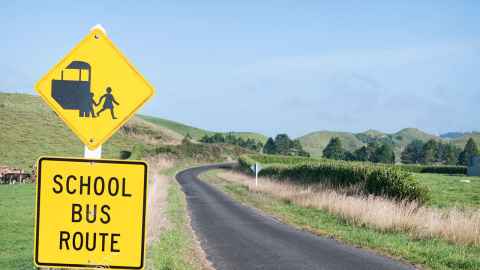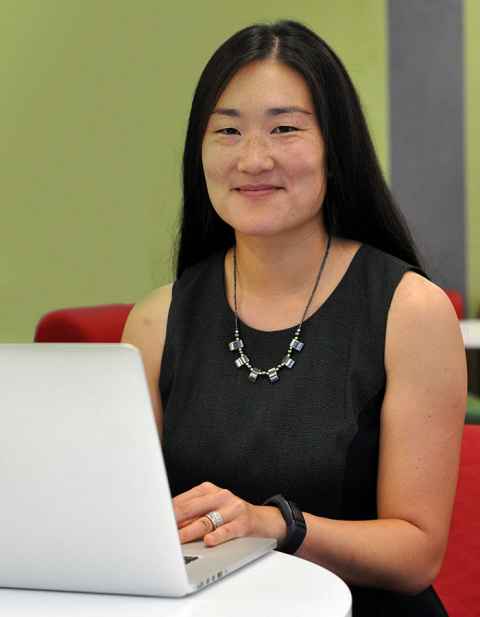Country schools facing rapid urbanisation
17 June 2024
Rural schools are in the crossfire of rapid urban development across New Zealand and facing big challenges, according to a recent study.

Driven by a housing shortage, rising house prices, population growth and Covid-19, encroaching urbanisation into small and rural communities is now common across Aotearoa and having an impact on rural schools.
“Rural schools sit at the heart of these intersecting issues,” says Dr Jennifer Tatebe, a senior lecturer in the sociology of education at Waipapa Taumata Rau, University of Auckland.
In her recent study focusing on rural schools affected by accelerated urban creep, and the resulting demand for schooling from young families moving into the area, Tatebe spoke to 18 boards of trustees and school principals about the challenges of a ballooning student population, changing demographics and how they’ve navigated them.
“Some common themes included an increasing need for student pastoral care because of the widening rural educational disparities, like the digital divide for example, and the challenge of maintaining a rural identity for the school despite the changing character of the area,” she says.
The process of housing densification is also occurring in urban areas, says Tatebe.
“In Auckland, Hobsonville Point, and the Tamaki Regeneration project in Glen Innes, Point England and Panmure are examples. The schools in these areas would likely be experiencing many of the same challenges and opportunities as rural schools in this research, such as rising school rolls, an increasingly diverse student population, and a changing community environment.”

While there is no official educational definition of a rural school, around a quarter of all school-aged children in New Zealand attend one, she says, “and as an example of the kind of change we’re talking about, a small rural school I looked at south of Auckland has just had its centenary.
“It had around 150 kids for a long time, but as of December last year, it had 650 as a result of the 2,000 homes that are being built in the area.”
Tatebe says there’s been a massive sell off of the farmland surrounding big cities like Auckland, with developers going ahead with huge housing estates without necessarily communicating with the Ministry of Education.
“So in this case, the local school is playing catch up with the Ministry. It now has new buildings and infrastructure in the pipeline, but they won’t be up and running for five years.”
As well as boards of trustees and principals, she also spoke to the children themselves, both the new students and the original rural ones, to find out how they felt about their new school lives.
“The rural children were very aware of the physical and cultural changes in their schools and communities, discussed things like new roading and amenities, increased traffic and the influx of new students arriving from across the country and overseas.
“Many were excited about new friendships and the ability to field sports teams with new students arriving from ‘town’ enjoying rural school traditions like calf club days and having more space to play outside,” she says.
Primarily, it will affirm the unique identity and character of rural schools, and by establishing a definition, their visibility will increase, giving them the platform they have always deserved to be heard and included in policy making.
Related issues in the study include parents commuting long distances back to the city for work, creating heavy volumes of traffic on the roads, and wanting to maintain friendships in their previous communities, leading to what Tatebe is calling ‘satellite towns’ that can feel disconnected and are altering rural community traditions and everyday life.
“People moving into these developments want what I’m calling ‘semi-rural’, where they get the nice lifestyle block and the views, the quieter pace, but they still have the grocery store and the petrol station, and it’s a kind of an ‘in-betweenness’,” she says.
Following on from these studies, Tatebe’s current project is exploring the complexity of rural life and the rural school context to develop an educational definition of rural schools in New Zealand.
She will be partnering with a University of Auckland colleague and two rural education scholars in Canada and Australia to look at the issue across three countries.
“Creating a rural school definition is important for a couple of reasons,” says Tatebe.
“Primarily, it will affirm the unique identity and character of rural schools, and by establishing a definition, their visibility will increase, giving them the platform they have always deserved to be heard and included in policy making.”
“Ultimately,” she hopes, “a definition will mean they’ll receive greater recognition, funding and support from the Ministry of Education.”
Governing in crises: Rural school board experiences of urbanisation during Covid-19 by Jennifer Tatebe, Liyun Wendy Choo and Lina Valdivia was published on 2 May 2024 in the Waikato Journal of Education.
The New Small and Rural Schools Influence on Regional Urban Developments by Jennifer Tatebe was published in The Australian and International Journal of Rural Education. (2021)
Media contact
Julianne Evans | Media adviser
M: 027 562 5868
E: julianne.evans@auckland.ac.nz